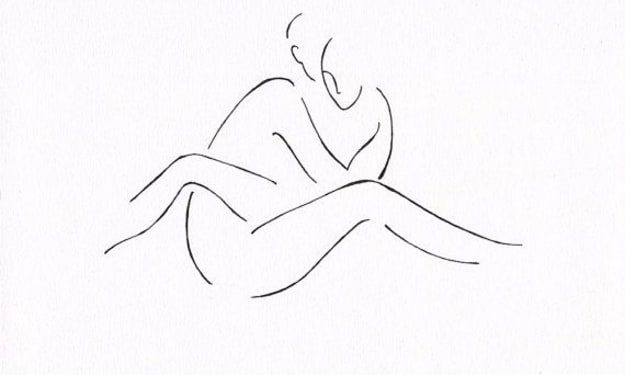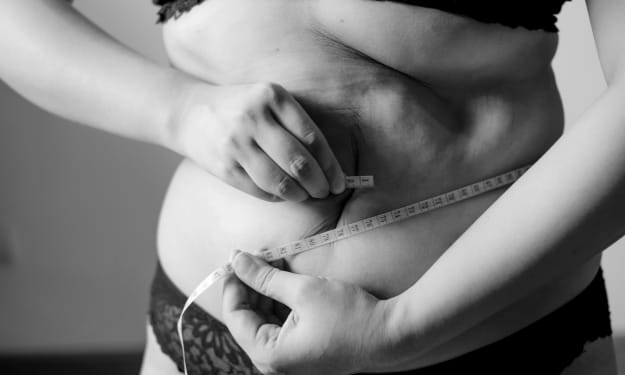Something's Got to Give
There is nothing worse than a love story gone wrong.

British freelance journalist Stephanie Yeboah recently made social media news this month when she published a story on Refinery29, titled “I Found Out The Guy I Was Dating Did It For A Dare. Here's What Happened Next,” writing about being embarrassed by potential partner all because she is a plus-size woman.
Yeboah explained that she had been courted by a British man whom she called Robert, who had wooed her and eventually slept with her before performing a disappearing act from her life. When perplexed about the situation, Yeboah learned that Robert had only approached her and dated her as part of a bet made by him and his friends—in order to see how long it would take the man to bed a plus-size woman.
As expected, Twitter went into a frenzy and was divided on their reactions to Yeboah’s story—some believed that what had happened to Yeboah was embarrassing and sad, while others felt that Yeboah deserved it because of the simple fact that she was an obese, black woman. The reactions took Yeboah by surprise so much that she had to mute most of her notifications from other Twitter users, but that is not the shocking aspect of the story—it’s the fact that other people (both black and white) were justifying Robert’s act because of Yeboah’s size and her skin colour.
These type of reactions then raise the questions: what do people want from women, and why do plus-size/obese people continue to get ridiculed?
Yeboah’s article was published in a space where the body-positive movement is most prominent—a movement that aims to celebrate all body types and disabilities, and to create a safe space from the otherwise known dangerous space of society and its beauty norms.
The reaction to Yeboah’s article proved to me that our society has a very long way to accepting people’s body size, regardless of what those sizes may have been. Yeboah, herself, had to post that she was not expecting the reactions that were posted—especially from other black Twitter users who began to further embarrass and insult Yeboah once they learned that the man who had embarrassed Yeboah was a white man.
Some users went as far as insinuating that Yeboah deserved the treatment that she received, all of which showed that one is sometimes truly alone when it comes to sharing their lives on social media.
Yeboah’s treatment further showed that society is still very critical of a person’s body type, and that the idea of being a plus-size woman only matters if your shape matches those of female models Ashley Graham, Tabria Majors, or Lesego Legobane (ThickLeeyonce)—bodies which are fat but are an hourglass shape so that they still display the curves that people desire. Although one will never know the proper reason behind Robert’s act, I can only share my sympathies with Yeboah about what had happened to her because such an act has only made her wary of interacting or getting close to cis-gender heterosexual men.
What I had read from the comments on Twitter also taught me that no woman is safe from society—no matter the body shape or race. A lot of people have cried for unity among the female gender and the male gender, apart from the long-standing cry for unity among races, but each of those cries seems very difficult to undertake when people are this cruel to their own genders and races.
It raises the one question that I have always asked: How can there be unity between races when certain races do respect and support one another?
Although we may never hear the story again from Yeboah, what we can take from her experience is this: whenever one wants to be open to interacting with other people, they have to be wary of they interact with, because at the end of the day, that person may only look out for themselves and not their partner. The other aspect to take from this experience is that no matter how hard we try as women, our society is not ready for confident women (especially women of colour)—and that is just sad, but you know what I have to say that?
If you don’t like what happened to Yeboah or other women who have experienced similar embarrassing moments, don’t bully or insult them. Just keep your mouth closed and carry on scrolling. You want this world to be a better place yet you type insults on your phone to hurt someone else’s feelings? In what world does that make sense?
You can’t be both the activist and the perpetrator—it’s whether you want a better society or want to be a bully and the target of people who are trying to rid the world of trolls and bullies.
Something has to give in this society, and it has to happen soon.
About the Creator
Mpho Rantao
I am a budding writer from South Africa, who enjoys writing stories and poetry. I hope all enjoy my posts. Feel free to contact me via email. Love and light.
Enjoyed the story? Support the Creator.
Subscribe for free to receive all their stories in your feed. You could also pledge your support or give them a one-off tip, letting them know you appreciate their work.






Comments
There are no comments for this story
Be the first to respond and start the conversation.